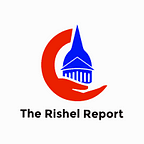WHY WE, AND DONALD TRUMP, FACE A STRESSFUL FUTURE!
We have a problem! President Trump clearly doesn’t care much about routine government. His published schedule, which normally would, if anything, exaggerate his busyness often these days contains only lunch (usually with his long suffering Vice President), and an occasional ceremonial meeting with some obscure national leader. He spends a great deal of his mornings tweeting, reportedly while listening to Fox television programming, and comes into the office around eleven.
Donald Trump faces a truly stressful period in his presidency. He has not, up till now, seemed to know or care much about the government he was elected to lead. He has often seemed angry, not about his administration’s failure to produce anything positive (the tax reform is widely viewed as a failure), but about the way he is personally treated. Still he doesn’t want to be perceived as a “loser”. He must run and win again.
We have a little over sixteen months before the election in November of next year. The president is clearly worried (panicked really) about the economy. He has constantly argued that things are going well because of the way that the economy and particularly the stock market have been performing. It is true that he had very little to do with it but people do tend to give the president credit for the economy and the stock market doing well. It has provided the best rationale for his reelection.
Now the economic news across the world is less positive. Part of the problem is Donald Trump’s huge “easily winnable” trade war with China. It is not going well. Over recent years the Chinese have become part of sophisticated supply chains not just with us but with the advanced economies of Western Europe and of South America. Those supply chains work only when the availability of products and of supplies is predictable. With more Trumpian and Chinese tariff threats hanging in the air, that predictability is not possible. Economies across the world are being negatively effected.
When Trump first talked of trade wars there was little worry. He had a long record of threatening actions which he did not take. When he has taken action there has usually been a quick face saving agreement which limited damage. This time there has been no retreat. Trump has actually put tariffs in place. And, the Chinese have not caved. Knowing that Trump may not be reelected they have little incentive to give in to his demands. They may get a better deal with the president who follows.
So, why do we have a problem? While Donald Trump and the Chinese play tough, the economic expansion that has been in place since the Great Financial Crisis of 2009 shows signs of tipping into recession. We have had warnings about recessions before. The Fed has predicted ten of the last five (old joke). The problem is that the usual strategies to counteract recessions are, this time, not available.
Essentially, recession means that people are not buying enough to keep other people working. The usual remedies stimulate buying. Normally the Federal Reserve has been able to respond to economic slowdowns by lowering the floor under interest rates. The lower interest rates can increase home buying. They can spark increased activity all through the economy. That spark is not available this time because the Fed interest threshold is already so low that there is little room to lower it.
Jerome Powell was appointed by Donald Trump to chair the Federal Reserve in February of 2018. Powell has been taking a lot of abuse lately from Donald Trump because he has refused to reduce interest rates, already very low, right now (the Fed is an independent agency but Donald Trump doesn’t seem to understand the concept). Powell knows that he needs to save what weapons he has until a real recession arrives. With the official unemployment rate at 3.7%, a recession may be looming in business articles but it is hardly here yet.
Another major weapon the government has for dealing with recessions is its ability to reduce taxes. Cutting taxes can put more money in people’s hands and stimulate buying. That means that when the economy is booming and unemployment is low, tax cuts should be avoided. The people around Trump knew that but with no legislative victories during all of his first year in office, the always popular tax cuts (labeled “tax reform”), were needed to give the administration at least one legislative victory.
The Tax Cuts and Jobs Act, signed in December, 2017, benefited primarily corporations and the very wealthy. Billed falsely as a “middle class tax cut”, it did little to help the middle class. Corporations primarily used the tax bonanza to buy back their own stock. The tax cuts did mean that the government had to make up for the lost income by borrowing. The government will now need to borrow over a trillion dollars for this fiscal year (a trillion is a thousand billion, a billion is a thousand million) with annual trillion dollar deficits stretching into the foreseeable future.
Donald Trump desperately wants to be reelected. Not only does he not want to be a “loser”, he knows that he faces increased legal jeopardy once out of office. A recession would increase the likelihood of defeat in 2020. With recession in the air and production in decline partly because of his trade wars, he faces blame for making a recession more likely.
In a new recession the Federal Reserve will find it difficult to help by reducing interest rates. They are already low. The traditional lowering of taxes to stimulate buying will be difficult too, the deficits they would cause would only add to deficits already dangerously high. So, Donald Trump faces a really stressful sixteen months. And, partly because of him, we all do!
H.J. Rishel
8/25/2019
